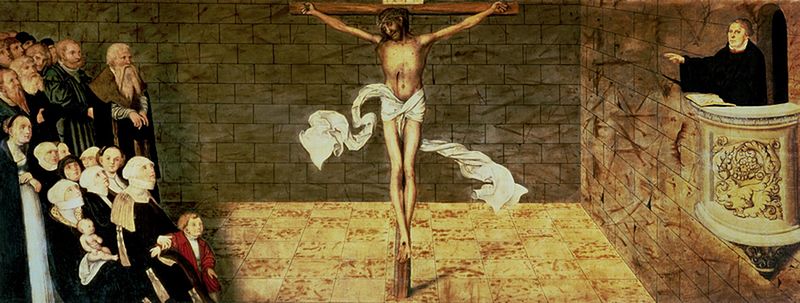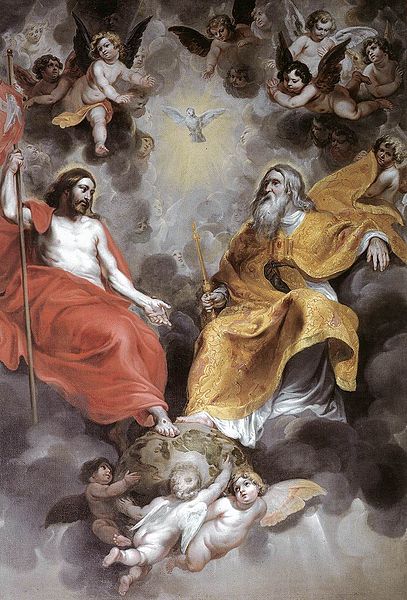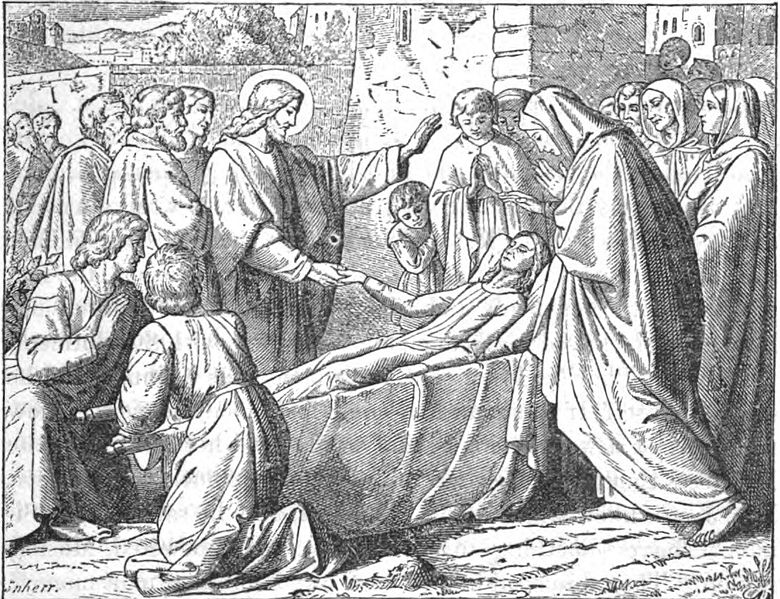October 27, 2019
This Reformation Day on October 31st will mark the 502nd anniversary of Martin Luther posting his 95 Theses on the Castle Church door in Wittenberg, Germany. These 95 Theses would lead to many debates and further writings by Dr. Luther which would result in his excommunication from the Roman Catholic Church and his condemnation as an outlaw by Emperor Charles V. We celebrate Reformation Day on October 31st, because the posting of these 95 Theses is considered the beginning of the Lutheran Reformation, the event which formed the Lutheran Church and separated us from Rome.
Yet, few of you Lutherans have read all 95 of these theses. And they are not included in our Lutheran Confessions. And yet, we celebrate a day, which resulted in our separation from the Roman Catholic Church. Why do we celebrate this? Why do we celebrate the Lutheran Reformation? What really was the Lutheran Reformation all about?
During the Lutheran Reformation, Martin Luther and a few other theologians wrote against abuses of the Catholic Church while writing what they were convinced was the true teaching of the Bible. A number of these writings were collected to form the Book of Concord, also known as the Lutheran Confessions. Within the Book of Concord are some writings you are familiar with: the Large and Small Catechism, and the Augsburg Confession for example. In one of these writings, the Smalcald Articles, Martin Luther wrote in just a few lines what the Lutheran Reformation was really all about. He writes,
“The first and chief article is this:
Jesus Christ, our God and Lord, died for our sins and was raised again for our justification (Romans 4:24-25). He alone is the Lamb of God who takes away the sins of the world (John 1:29), and God has laid upon Him the iniquities of us all (Isaiah 53:6). All have sinned and are justified freely, without their own works or merits, by His grace, through the redemption that is in Christ Jesus, in His blood (Romans 3:23-25). This is necessary to believe. This cannot be otherwise acquired or grasped by any work, law, or merit. Therefore, it is clear and certain that this faith alone justifies us. As St. Paul says: For we hold that one is justified by faith apart from works of the law. (Romans 3:28) That He might be just and the justifier of the one who has faith in Jesus. (Romans 3:26) Nothing of this article can be yielded or surrendered, even though heaven and earth and everything else falls (Mark 13:31). For there is no other name under heaven given among men by which we must be saved. (Acts 4:12) And with His stripes we healed. (Isaiah 53:5) Upon this article everything that we teach and practice depends, in opposition to the pope, the devil, and the whole world. Therefore, we must be certain and not doubt this doctrine. Otherwise, all is lost, and the pope, the devil, and all adversaries win the victory and the right over us.” (Smalcald Articles Part 1 Article 1).
The Lutheran Reformation is about the teaching from the Bible that Jesus Christ died to save sinners and that sinners are justified by faith in Jesus Christ apart from works of the law. I emphasize this, so that you know that we are not celebrating 500 plus years of rebelling against the Catholic Church or religious liberty or finding our own traditions. We are celebrating the Lutheran Reformation, which confessed the Gospel of Jesus Christ to be the foundation of the Christian Church.
In Galatians chapter 1 St. Paul writes, “But even if we or an angel from heaven should preach to you a gospel contrary to the one we preached to you, let him be accursed. As we have said before, so now I say again: If anyone is preaching to you a gospel contrary to the one you received, let him be accursed.” (Galatians 1:8-9) It was in obedience to this word of God written by the Apostle Paul that the Lutheran Reformation took place. When Martin Luther wrote and preached against the teaching of the Roman Catholic Church, he did not oppose the Church of God nor did he try to establish a new church with a new teaching. Rather, he sought to be faithful to the Gospel delivered to us through the Holy Scriptures. The Gospel of the holy Scriptures teaches us that sinners are saved through faith in Jesus Christ alone apart from their works. Even if an angel from heaven were to preach a different Gospel, we Christians are charged to reject that teaching and cling to the Gospel which saves. The Roman Catholic Church taught that people were saved not by faith alone, but also by their good works. This is the teaching Martin Luther opposed
Even though the visible head of the church on earth, the pope himself taught a different gospel, even though bishops, emperors, and councils confessed this new gospel and had done so for hundreds of years, Luther held to the Gospel delivered in Scripture, the Gospel, which St. Paul taught, the Gospel that declares free forgiveness through faith in Jesus apart from works of the Law.
And this is the Gospel we hold to today. This is what it means to be a Lutheran. We reject any teaching from men or angels, no matter how lofty they might be, and we cling to the teaching of holy Scripture. “We hold that one is justified by faith, apart from works of the law.” (Romans 3:28)
To be justified means to be declared righteous by God. It means to be found innocent by God, to be forgiven of all your sins. Not only the Roman Church, but every religion invented by man teaches that you are justified by your own works. Even the non-religious, but spiritual types say things like, “As long as you are a good person, you’ll go to heaven.” But Scripture makes clear, that we cannot be justified before God by works of the law, because through the law comes knowledge of sin.
The Law is good. It tells you what you need to do to be righteous. But Scripture clearly says that it is not the hearers of the Law who are righteous, but the doers of the Law who will be justified. (Romans 4:13) The Law tells you what is right, but it does not give you the ability to do what is right. Instead, it condemns you as a sinner. Sinners fall short of the glory of God. Everyone is a sinner. The Law doesn’t justify anyone. Rather, the Law imprisons and condemns everyone.
This is why you must be justified by faith and not by works. Those who say that you can be saved by your own good works lie. It is impossible. We all fail. It is only through faith that you can be justified before God. Faith is not your work. Rather, through faith you receive the gift of salvation by grace. “For all have sinned and fall short of the glory of God and are justified by his grace as a gift through the redemption that is in Christ Jesus, whom God put forward to be a propitiation by his blood, to be received by faith.” This means that God declares you forgiven of all your sins for the sake of Jesus’ suffering and death on the cross. This forgiveness is received through faith, that is, when you believe that God receives you into favor and forgives your sins for Christ’s sake.
Faith is not a special work you do to earn God’s favor. Faith is simply trusting in the promise God gives you in Jesus Christ. In this way, faith always points you to Jesus. The religion of works righteousness, which says that you must earn your salvation through your own good works sounds very pious and proper. Yet, it takes your eyes off Jesus and onto your own works. The religion of works righteousness makes Jesus optional. Yet, faith makes Jesus indispensable. When Scripture says that we are justified by faith apart from our works, it says that we are justified by Jesus. Our hope is in Jesus, in his death and resurrection that took away our sins!
This Gospel of justification by faith apart from our works points us always to Jesus. In this way, the Lutheran Reformation is really all about Jesus and what he has done to save sinners. The Reformation was not about inventing a new Gospel, but uncovering the Gospel, even as you don’t put a lamp under a basket, but on a lampstand to illuminate the whole room!
This Gospel of justification by faith apart from works determines how we teach every other part of Christian doctrine. We look at the Ten Commandments not as the way to heaven, but as God’s tool to show us our sins and need for a Savior. We don’t simply look at God as the creator of the universe, but as the one who sent his Son to die for us and give us eternal life. We see the Holy Spirit as the one who proclaims this saving Gospel to us and gives us the power to believe it. When we look at Baptism, we see how God justifies us by washing us in Jesus’ blood. We receive justification through faith when we eat and drink Christ’s true body and blood in the Sacrament. We believe that the Church is made up not of those, who are without sin and better than everyone else, but of those, who have washed their sinful robes and made them white in the blood of Christ.
By keeping this teaching of justification central in the Lutheran Church, we keep Jesus central. This is Jesus’ Church.
We are all sinners. We know this because the Bible says so. We know this because we know our own sins. Jesus says that whoever sins is a slave to sin. But, if the Son sets you free, you are free indeed. The word for free in the Greek is ελευθεροι (eleutheroi). Notice how it kind of sounds like Luther? Luther was known to play around sometimes with the spelling of his name and would even write it in Greek, so that his name would mean free. He rejoiced that Christ Jesus, God’s own Son set him free from sin, death, and the devil. When we call ourselves Lutherans, we are not claiming some German guy, who lived 500 years ago as our Savior. Rather, we are confessing the same faith as that poor sinner did. We confess that the Son has set us poor sinners free, not by works done by us, but through his own suffering and death. We receive this freedom from sin, this justification, through faith alone. Through this faith we receive Jesus. May nothing in heaven or earth or under the earth separate any of us from it. Amen.



 RSS Feed
RSS Feed